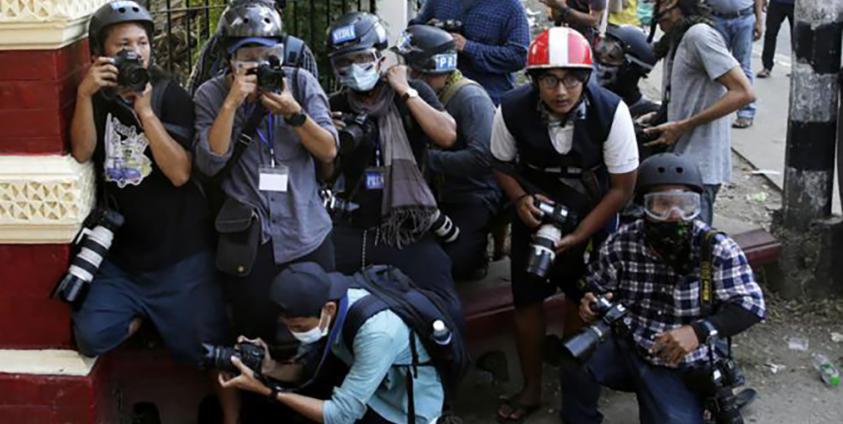The Karenni State Interim Executive Council (IEC) has issued eight guidelines for all local and foreign media personnel to follow when reporting in Karenni, prompting the Independent Press Council of Myanmar (IPCM) to consider it as posing a threat to press freedom.
The eight guidelines are set out based on mandatory compliance by all media reporting in Karenni State, according to the IEC Media Ethics Directive.
Naing Ko Ko Zaw, vice president of IPCM, underscored the contentiousness surrounding guideline number 5, which “prohibits actions that could disrupt the operational and administrative workings of Karenni State, or endorse the Junta during the ongoing revolution”, despite the inherent right of all media outlets to report in the region.
"In times of revolution, statements like this can significantly hinder freedom of information. Journalists might encounter obstacles in accessing information, which could lead to the public being deprived of accurate information and updates”, Naing Ko Ko Zaw said.
He stressed that journalists adhering to media ethics should be allowed to present diverse perspectives in accordance with the principle of freedom of access to information, while also urging IEC to prioritize disclosing vital information essential for public awareness.
"An ethical journalist always attempts to present all sides the story. With media outlets that prioritize the public and value their sources, it is equally important for sources of information to respond constructively. While IEC can opt to not address questions that may jeopardize sensitive administrative or operational matters, we strongly encourage it to disclose essential information that the public needs to know”, Naing Ko Ko Zaw added.
IPCM also announced its intention to facilitate a meeting between media representatives and IEC at the earliest opportunity, with the goal of ensuring unrestricted access to information, and expediting the flow of information from Karenni State.
IEC's Media Ethics Directive also mandated that journalists show letters of accreditation from their respective media outlets, notify IEC in advance before reporting, wear uniforms from their respective media outlets during field reporting, and show their media identification cards before commencing work.
However this clause about media uniforms would not apply to most media. The IEC directive reads, “ media must wear uniforms from their respective media outlets during field reporting.” The IEC needs to understand media in general, do not wear uniforms.
Other guidelines calling on media to respect local customs and culture are clearly non- controversial.
The IEC has issued a warning that media outlets found to violate media ethics will be called in for questioning, and those blatantly violating media ethics, will face a ban on reporting in Karenni State.








